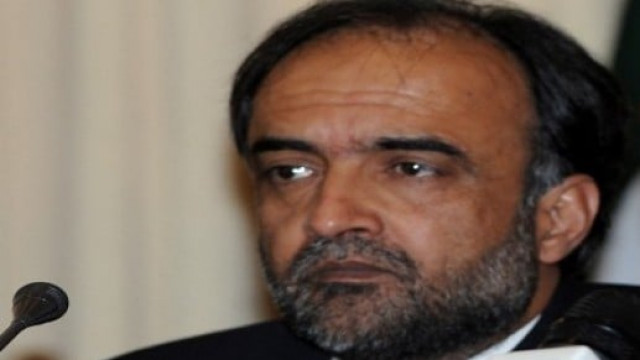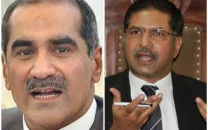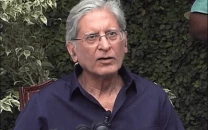‘Austerity plan’ shelved

The plan’s implementation has been deferred to the next fiscal year. The ‘ambitious’ measures, aimed at helping the government save money, suggested either abolishing or merging ‘inefficient and unnecessary’ ministries and divisions at the centre. The cabinet approved the plan in mid December 2009 and it was supposed to be implemented during the current financial year according to initial arrangements. But on Thursday, Federal Information Minister Qamar Zaman Kaira told The Express Tribune that implementing the plan might not be possible before the next financial year.
Kaira cited the resignation of former Finance Minister Shaukat Tarin, who was heading the implementation committee, as one of the causes of the delay. However, observers believe the coalition government can not afford to reduce the number of ministries because it has to offer its ‘partners’ slots in the cabinet. Currently close to or over 60 parliamentarians are either federal (full) or state (junior) ministers. They all come from four parties constituting the ruling coalition at the centre.
Offering ministerial slots is one way the Pakistani government keeps its political support intact. Kaira said there were other ‘pressing’ issues to deal with when the advisor to the prime minister on Finance Dr. Abdul Hafeez Sheikh took over from Tarin early this year. “There were other tough things to do,” Kaira said, but did not elaborate on what was more important than implementing the austerity plan. Secretary Cabinet Division Abdul Rauf Chaudhry, who is a member of the implementation committee, also told The Express Tribune that there wasn’t any plan to initiate the execution of austerity measures during this fiscal year.
Chaudhry said two meetings of the implementation committee had already taken place but the Sheikh was still to take over the job formally. The recently-approved 18th constitutional amendment act has also called upon the government to reduce the size of the federal cabinet to 11 per cent of that of the parliament. But, according to some speculations, Prime Minister Yousaf Raza Gilani’s administration says this reduction applies not to the current cabinet but to the future cabinet.
Shaukat Tarin, when contacted, refused to comment on the government’s ‘seriousness’ to implement the austerity measures he had proposed as head of the cabinet committee for this purpose. He, however, said the report he submitted to the parliament contained not only austerity measures but also measures for reforming governance and restructuring several loss-making state enterprises.
The present government split several ministries when it took over in 2008 to ‘accommodate as many as members’ as ministers. For instance, postal services were separated from the communications ministry. Likewise, dairy development and the livestock division were carved out of the food ministry in what appeared to be a ‘funny’ way of handling governance.
Published in the Express Tribune, May 21st, 2010.



















COMMENTS
Comments are moderated and generally will be posted if they are on-topic and not abusive.
For more information, please see our Comments FAQ